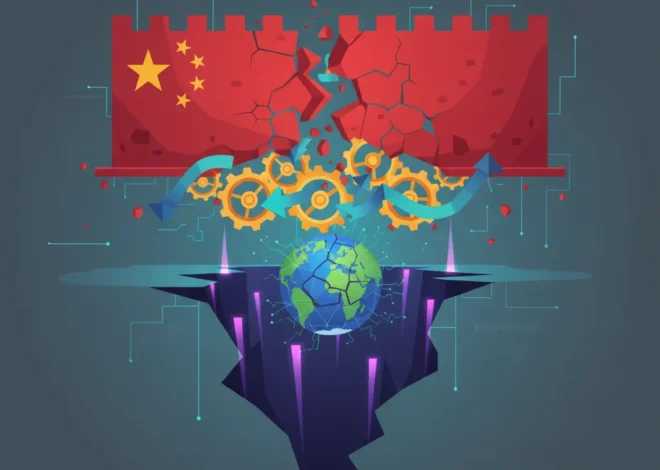
The Spy Who Billed the Market: Why a Failed Espionage Case is a Major Red Flag for Investors
In the intricate dance of global power, the missteps often reveal more than the choreographed movements. A recent, seemingly contained event in the UnitedK—the abrupt collapse of a high-profile espionage case involving a parliamentary researcher accused of spying for China—is one such misstep. While headlines focused on the procedural breakdown, with ministers pointing to a senior civil servant for the decision-making, the real story for those in finance, investing, and business leadership lies in the chilling subtext. This isn’t just a political fumble; it’s a stark indicator of the escalating geopolitical risks that are fundamentally reshaping the global economy and the stock market.
The case, which saw prosecutors suddenly drop charges against the researcher, has sent ripples through the corridors of power. According to the Financial Times, ministers have indicated that Matt Collins, the UK’s deputy national security adviser, was “personally responsible” for decisions regarding the witness statements that ultimately led to the case’s failure. This internal finger-pointing, while politically charged, distracts from the larger, more ominous picture: the pervasive and increasingly bold nature of state-level interference in Western democracies. For investors and financial professionals, ignoring this signal is akin to ignoring a tremor before an earthquake. The aftershocks will inevitably be felt in our portfolios, our banking systems, and our economic forecasts.
Deconstructing the Collapse: More Than a Legal Technicality
At its core, the incident involved a British citizen working as a parliamentary researcher who was arrested under the Official Secrets Act on suspicion of espionage for Beijing. The prosecution’s decision to offer no evidence, leading to the case’s collapse, was a stunning reversal. The official explanation, as reported, revolves around the handling of evidence and witness statements, a matter laid at the feet of a high-ranking civil servant rather than political leaders (source). However, for the astute observer of the global economy, the “how” is less important than the “what now.”
This event serves as a critical data point for several key areas of risk analysis:
- Heightened UK-China Tensions: The public nature of the accusation, followed by a procedural failure, creates an awkward and volatile diplomatic situation. It signals an aggressive intelligence posture from China that is not being effectively countered, at least in the public judicial arena.
- Internal Institutional Weakness: The failure to bring a major national security case to trial raises questions about the UK’s institutional capacity to manage complex threats. This perceived weakness can erode investor confidence in the stability and predictability of the UK market.
- The Rise of “Grayzone” Conflict: This case is a textbook example of grayzone activities—actions that are hostile but fall just below the threshold of conventional warfare. Economic espionage, political influence campaigns, and cyber intrusions are the new battlegrounds, and the financial sector is on the front line.
Understanding these dynamics is no longer an abstract exercise for political scientists; it is a fundamental requirement for modern investing and risk management in an interconnected world of finance. The stability of our trading platforms and the integrity of our financial technology depend on it.
The Economic Fallout: Pricing Geopolitical Risk into Your Portfolio
For decades, many Western investors have operated on the assumption that globalization would lead to a convergence of interests, creating a stable platform for international trade and finance. This assumption is now being tested to its limits. Events like the failed spy case force a recalibration of how we measure risk, moving beyond traditional economic indicators to embrace the complex reality of geopolitics.
The most immediate impact is on companies with significant exposure to China. This includes businesses reliant on Chinese supply chains, those with a large consumer base in China, or technology firms engaged in joint ventures. The political fallout from this episode could easily translate into retaliatory economic measures, regulatory hurdles, or a souring of consumer sentiment. The stock market often reacts swiftly to such uncertainties, punishing firms perceived as being caught in the crossfire.
Beyond direct exposure, the incident contributes to a broader “risk-off” sentiment that can affect the entire economy. It reinforces the narrative of a bipolar world dividing into Western and Chinese spheres of influence. This “decoupling” has profound implications for everything from banking regulations to the flow of capital. We can expect to see increased scrutiny of foreign investments, particularly in sensitive sectors. The UK’s National Security and Investment Act is a prime example of a legislative tool that will likely be wielded more aggressively in this climate, potentially derailing M&A deals and impacting venture capital funding for fintech startups that might be perceived as having ties to adversarial states.
Below is a breakdown of key sectors and the specific geopolitical risks they now face, amplified by this recent intelligence failure.
| Sector | Specific Geopolitical Risk | Potential Market Impact |
|---|---|---|
| Financial Technology (Fintech) | Increased risk of state-sponsored cyberattacks targeting trading algorithms, customer data, and core banking infrastructure. | Higher operational costs for security, potential for catastrophic data breaches, and decreased investor confidence in digital-first platforms. |
| Telecommunications & Tech Hardware | Heightened scrutiny on supply chain integrity and potential for outright bans on components from certain countries (e.g., the Huawei precedent). | Supply chain disruptions, increased R&D costs to design out risky components, and stock price volatility. |
| Higher Education & Research | Risk of intellectual property theft through academic partnerships and state-sponsored researchers. | Loss of competitive advantage for the national economy, impacting long-term growth prospects in innovation-led sectors. |
| Asset Management & Banking | Tighter regulations on foreign capital inflows and potential sanctions risk for entities dealing with state-owned enterprises. | Reduced M&A activity, compliance overhead, and potential limitations on global investment strategies. |
Fortifying the Financial Frontier: The Role of Technology and Vigilance
The new geopolitical landscape is defined by a battle for information. In the world of finance, this translates to a battle for data—market data, client data, and proprietary intellectual property. The primary weapon in this conflict is technology, making the financial technology sector both a prime target and a critical line of defense.
Economic espionage has evolved far beyond traditional methods. State actors are now more likely to deploy sophisticated cyber operations to infiltrate banking networks, steal trading strategies, or disrupt financial markets to create economic chaos. This threat landscape demands a paradigm shift in how financial institutions approach security. It’s no longer sufficient to build a digital fortress; firms must assume they have already been breached and focus on resilience, rapid detection, and response.
This is where emerging technologies like blockchain come into the conversation, not as a panacea, but as a potentially powerful tool. The core proposition of blockchain technology—a decentralized, immutable ledger—offers a compelling defense against certain types of data tampering and fraud. In trade finance, for example, a shared ledger can provide an undisputed record of transactions, reducing the risk of document forgery. In the world of digital assets and securities trading, it can provide a transparent and tamper-resistant record of ownership, hardening systems against covert manipulation.
However, technology alone is not enough. The human element, as highlighted by the parliamentary researcher case, remains the most vulnerable link. This underscores the need for a holistic security culture within financial organizations, encompassing rigorous background checks, continuous employee education on social engineering threats, and strict access controls. Every employee, from the trading desk to the C-suite, must be viewed as a potential target.
The Way Forward: A New Playbook for Investing and Leadership
The collapse of a single spy case in London may seem distant from the day-to-day realities of stock market analysis or corporate strategy. But it is a powerful symbol of a world in flux, where the old rules of economic engagement no longer apply. The lines between national security and economic security have been erased. As leaders in finance and business, we must adapt our playbook accordingly.
This adaptation requires several key actions:
- Integrate Geopolitical Analysis: Geopolitical risk can no longer be a footnote in an annual report. It must be a core component of every major investment decision, M&A strategy, and market forecast. This requires investing in genuine expertise, not just headline-watching.
- Prioritize Cybersecurity as a Business Function: Move cybersecurity out of the IT department’s basement and into the boardroom. It is a fundamental pillar of business continuity and brand reputation. The threat is not just from criminals, but from nation-states with vast resources.
- Stress-Test Your Supply Chains: The era of prioritizing efficiency above all else is over. Resilience is the new watchword. Companies must understand every link in their supply chain and develop contingencies for disruptions caused by political, not just logistical, failures.
- Engage with Regulators: The regulatory environment will continue to tighten. Proactively engaging with policymakers to understand and shape new rules around foreign investment and data security is crucial for navigating the economics of this new era.
The failed prosecution of an alleged spy is a wake-up call. It reveals the hidden wiring of a global system under immense strain. For those who can read the signals and adapt, there will be opportunities. For those who cling to an outdated view of a frictionless global economy, the risks are mounting with every new headline.


